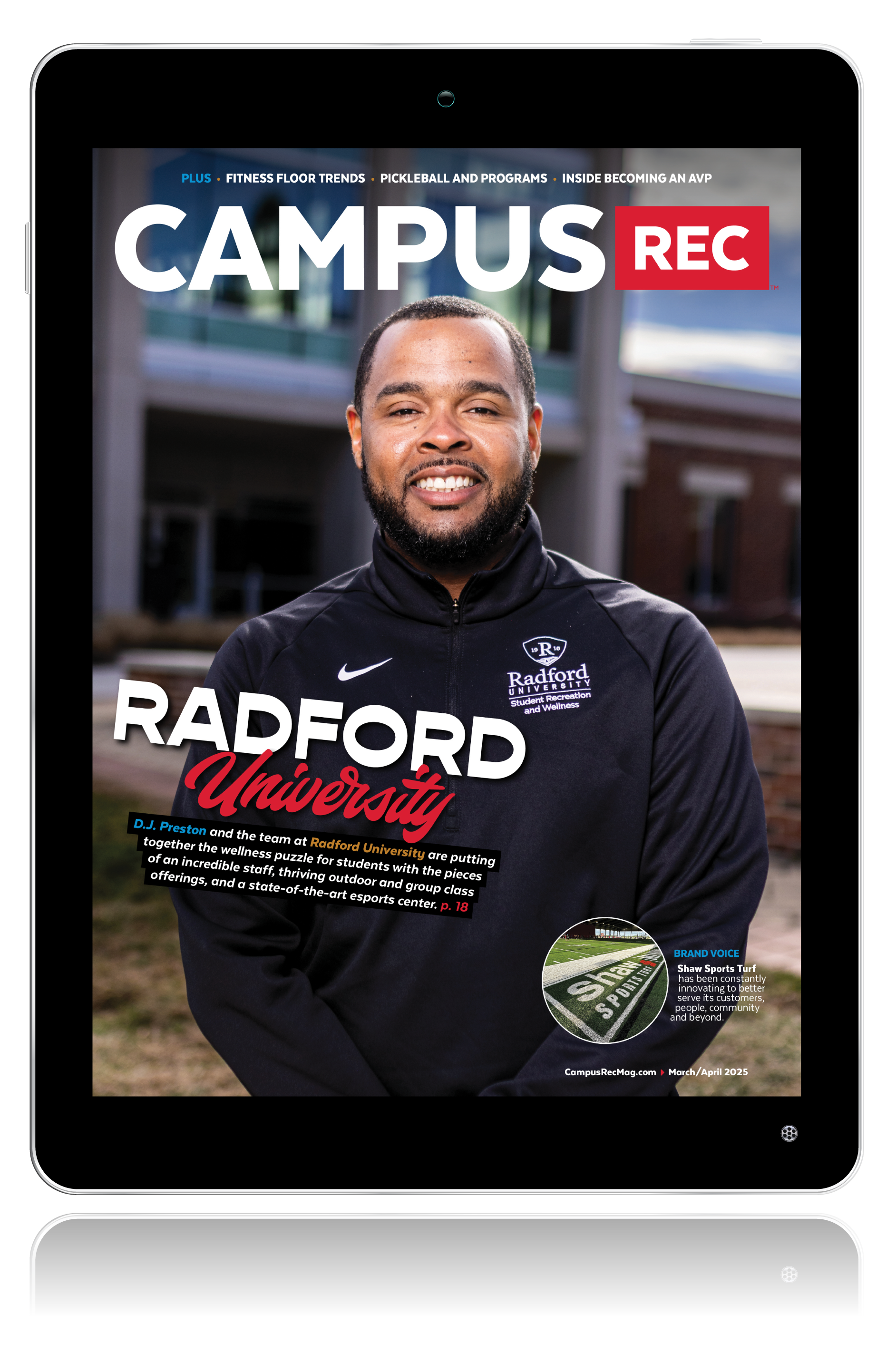September 2024
After 17 years in the field, I finally did it. I earned a seat as the officer in charge of Campus Recreation and Wellness at East Carolina University (ECU). I had the pleasure to work at three institutions throughout my career, advancing from student employee to graduate assistant, assistant director, associate director and then finally after only a few tries, to Sr. Director of Campus Recreation and Wellness (CRW).
I formally took the helm as only the third director in department history in March 2024 and honestly couldn’t believe I finally made it to the top. I knew I wanted to be a director since I was a first-time professional back in 2007, but wanting something and finally having it are two very different things. The challenges I faced in the first six months coupled with a few behind the scenes surprises really opened my eyes to this new role and to the journey that lie ahead.
Here are five things I’ve learned in the first six months of my new role:
Ask Questions
When you start a new position, in any field, you must understand you don’t know, what you don’t know. Now you can’t question everything you find interesting in a particular operation, but obtaining clarification on the why is essential to examining the bigger picture. ECU Campus Recreation and Wellness supports 150 total acres of outdoor facilities, with 13 natural grass playing fields. The cost to maintain these fields — mowing, fertilizer, seed, chemicals, etc. — is quite extensive, but the quality of our outdoor facilities is unmatched in the region. Learning about this operation was essential to my new role and I made it an emphasis this summer to ask the right questions in front of the right people to support our two field complexes. Engaging in this process allowed our department to obtain support at the Vice Chancellor level for capital purchases to ensure these facilities stayed pristine for many years to come.
Survey the Room
During my first three months in the new position, I scheduled one-on-one meetings with each full-time staff member and graduate assistant in the department. I found this to be the best way to get candid responses, especially for those who may be insulated by three or four layers of supervision. This personal communication provided some eye-opening details into their daily lives and how the department was flourishing in some aspects and falling short in others. In addition to CRW staff, I also took time to meet with department heads from numerous areas on campus, ensuring I learned about key partnerships, future collaborations, and the needs of our students, faculty and staff. Gathering the pulse of your employees and campus constituents is essential to formulating your short- and long-term plans.
Be Patient
The adage, “Rome wasn’t built in a day” remains true in the present. One cannot come into a new senior administrative position and immediately fix every problem in front of them. You may survey the room and find 50 different complaints or problems that need to be addressed, but many of them will take years. Yes, everyone wants or needs a $50 million bond to renovate and expand their facilities, but you probably can’t make that happen tomorrow. Patience is a virtue and you must be willing to hold off on the rash decisions you can’t undo. Simply waiting a whole calendar year to make a big decision may give you new data to assist your thought process or the problem may rectify itself. Remember, we work in a fluid environment where a one-quarter of your participants turnover every year. Acting with immediacy is not always the right way to improve your facilities, programs and services.
Create Small Wins
Changing an arcane standard operating procedure, modifying the format of a staff meeting or just putting a few day-to-day hassles in the proverbial parking lot can really make a difference for the team. A simple win this summer was removing the burden of creating a slide deck for every staff meeting and moving to quick verbal updates. Staff felt less pressure to prepare, more employees were given time to speak and it removed the lull of hearing every participant review the prior four weeks. Additionally, we brought more discussion items to the group creating buy-in for departmental changes including a new banquet format, staff uniforms, new system policies and flexible scheduling. As supervisors, we often cannot provide a salary increase or new responsibilities, but we can make sure our staff are engaged and feel heard.
Put in the Work
This is one of the simplest things a new senior administrator can do to earn trust and to build political capital on campus. Being visible, registering to volunteer at divisional events and helping staff clean up after a busy tabling session are all ways that show you care and are invested. We all get caught up in work at our desks or want to sneak out early on a beautiful summer afternoon, but sometimes being side-to-side with your staff is the best way to form relationships. Even though you may be the department head, you can’t forget your roots. Try to remember what it was like to host a staff training or a small intramural pop-up event and have the director show up to say hello. Sometimes the best gift you can give is your time.
Want to stay up-to-date on the trending topics our columnists write about? Subscribe here.










